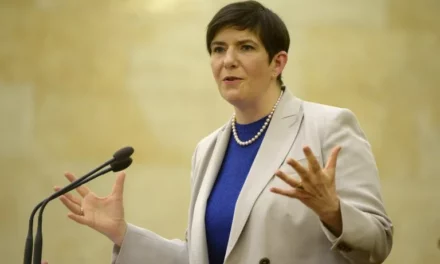Regarding the price regulation of energy carriers, the Bratislava government trusted in the common solution advocated by the European Union. It has now become clear that the proposed solution will not be acceptable for Bratislava, as decisions were made in Brussels based on the interests of the large member states and strong economies. The scheme is not acceptable for smaller member countries and the periphery.
Based on the joint EU solution outlined earlier, the Bratislava government expected compensation of 1.5 billion euros. He wanted to use such a source to compensate companies, entrepreneurs and a part of households for their substantially increased costs due to the grossly inflated price of electricity.
However, the adopted Brussels formula would provide only 115 million euros for Slovakia, which is ridiculously little for compensation, so the government cannot accept it.
For the first time, Bratislava reacted harshly to the address of Brussels and vetoed the proposal of the European Commission together with 10 other member states.
What to expect next? Option B cannot be ruled out, i.e. the government declares a state of emergency. Based on this, the partially state-owned joint-stock company, Szlovák Villamosművek - which produces the electricity - partly nullifies its business obligations and obliges it to supply primarily domestic companies, entrepreneurs and households with electricity at a relatively affordable price.
If the government takes this step, it will for the first time take a spectacular step in the interest of the population and domestic entrepreneurs and companies, ignoring the higher-level interest.
Something has to be done, since the aluminum smelter, the chemical plant in Vágasselly, the chemical plant in Nyitranová have been shut down, and a significant part of Slovakian industry is about to be shut down. Even some of the car factories raised the possibility of closing.
However, the outlined scenario suggests serious countermeasures, namely in the case of natural gas. Since Slovakia needs to import natural gas, the above step – unusual in business circles – may backfire on electricity imports.
After all, more and more natural gas is coming through the channels provided by the European Union to replace the amount of natural gas that used to flow from Russia, but which is decreasing month by month. As a response, these latter sources may also dry up. And then what can be expected? Is the familiar Orenburg gas coming again? We can expect serious changes by the end of the year. The price and available quantity of energy carriers in 2023 will be huge for the population, but most of all for industry, companies and businesses. It seems that energy carriers have become the main tool of geopolitics.
Source: Felvidek.ma/Iván Farkas is the faction leader of the Association
Featured Image: Pixabay












